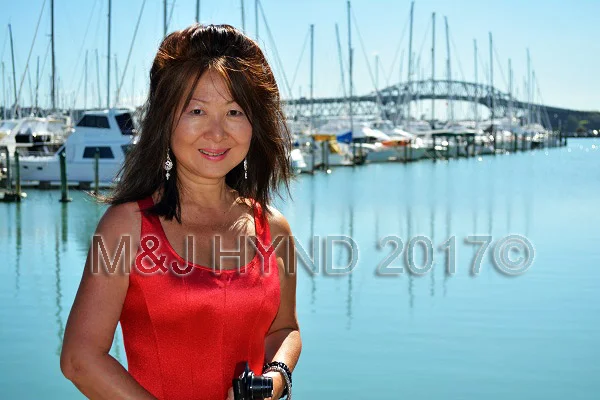Stroke: My Second Twenty-First Birthday
When you've had an experience such as mine, you do think of the greater good and what your life meant in the long run. I couldn't stand/walk, talk, read, write, or remember after the stroke (short-memory was totally blitzed); was in a wheelchair for a lot of years, with weakness of the right hand & arm (it is slightly lessening with time).
DIY stroke-rehab try-whatever-is-possible exercises, perhaps FES devices, participation with University for Interventions .. anything is possible. 21 years after the stroke, though I still have a long way to travel, I have made significant progress as a stroke survivor, inspiration to re-learn LIFE.
After the open-brain surgery for my massive AVM-haemorrhage, my right (paralysed) side was so extraordinarily heavy, like a lump of concrete in the hospital bed. My left side of the body after the stroke carried most of my weight. Re-learning to stand for the first time after the stroke meant lots of tears and struggle to put weight on my paralysed side. This meant I was wheelchair-bound at the beginning.
Observation: the public generally expect people in wheelchairs to at least get themselves around because they're only it in due not being able to walk, right? ... only my left arm/hand was functional (would have only been able to go round in circles - getting nowhere fast) - hence the urgency to get my right leg functional again, so wouldn't have to rely on anyone else just to get from point A to point B.
This is the 21st year, after my stroke – a celebration is definitely due. So, I've (and Murray) made a video to commemorate a valid life milestone. That's why I'm wearing red in the video. Here's the 2016-video, Stroke: Re-learning Life.
Re-learn to walk after the stroke? I exhibited foot-drop, so shuffle-walking and bent, watching my feet all the time, was common for me, dragging my whole body forwards didn't seem to bother me. I was 'walking', that meant something, though to return to the wheelchair after 10 minutes.
Previously back at school, I tried ''tinikling'', a traditional Philippines folk dance, or Bamboo dance. It involved bamboo poles striking the ground, in time with music, as dancers step over or in-between them in fast coordination. Balance and precision, split-second timing.
To re-learn to use escalators after the stroke took a long time - I have ''clonus'' issues (involuntary, rapid rhythmic bursts of muscle contractions as I step forward) - balance and timing… it seemed insurmountable back then.
What do you do if you had a stroke? When you're at the utmost low, you have to have inspiration to get up and begin life again. Support from family and friends was one avenue. I'd be the first one to say that I have a very loving soulmate, friend, carer, husband, Murray.
Speech after stroke, and comprehension? I had to learn English again, for the second time. I couldn't remember what to say, let alone how to say it.
Reading; pronouncing the words without slurring or mumbling took a long time to master. Writing, relearning how to use chopsticks with my non-dominant hand and was challenging but do-able in the end.
You can lead a horse to water but you can't make him drink. Inspiration, the opportunity to do something special is everywhere around you. People will do what they want, when they want it; be it stroke rehab, play the violin better, or do pottery. It has to be what comes from inside you, that you have the burning desire for change.
After the stroke, I've had to relearn to count. When I had to relearn the alphabets, the activity for the brain to focus on was searching for names in dictionaries or phone book. That is: retry, retry... and retry again, many times over till the activity becomes second-nature - gets easier over the years, still way to go for me...
Stroke rehab or life after stroke, I liken to childhood. Learning to walk, talk, read, write, remember in 'normal' kids fashion... it takes time. More time for brain-trauma survivors, in our perhaps impatient world nowadays.
My birth certificate waved a stern finger this year and said “no, you are 55”. I was re-born in 1995, in that I had to relearn everything from scratch, so I have a valid excuse to have a huge party to celebrate the fact I've reached 21 (again).
* I'd recently been in contact with Dr Jill Bolte Taylor (who has appeared as a speaker on TED.com before, and has been interviewed by Oprah Winfrey), who has been my inspiration to do many more things with my life. She is stroke triumphant. I would like to think of me as against-all-odds stroke survivor, relearning life is only the beginning.




